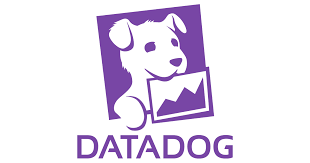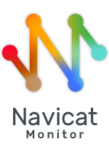Benefits Of Using Database Monitoring Tools
For companies that depend on their databases to handle and retain vast volumes of data, database monitoring solutions are crucial. These solutions have many advantages that can assist guarantee data security, enhance database performance, and streamline processes. We will go over the many advantages of using database monitoring solutions in our buyer's guide, which will also help you choose the best tool for your company.
1. Find And Fix Problems In Real-Time: The capacity of database monitoring tools to find and fix problems in real-time is one of their most important advantages. These tools keep an eye on how well your databases are doing and notify you of any possible problems before they become serious ones. This minimizes downtime and guarantees smooth operations by enabling you to promptly address and fix concerns.
2. Enhance Database Performance: Database monitoring tools offer insightful information about the response times, data usage, and bottlenecks in your database. You can improve the performance of your databases by using this information. You can guarantee that your databases operate effectively and give your users a flawless experience by locating and resolving performance issues.
3. Strengthen Data Security: Because databases store a lot of private data, hackers and cyberattacks target them. Strong security features like data encryption, user activity tracking, and access limits are provided by database monitoring solutions to help shield your data from unwanted access. You can protect your data from possible attacks and follow compliance guidelines if you have these technologies in place.
4. Save Time And Resources: Database monitoring by hand can take a lot of time and specialized resources. This procedure can be automated with database monitoring solutions, giving your IT staff more time to concentrate on other important duties. Additionally, these solutions offer thorough reports and dashboards, which facilitate the analysis of database performance and the discovery of trends and patterns.
5. Scalability And Flexibility: Your data needs will expand along with your business. Tools for database monitoring can readily grow with your company to accommodate growing databases and data volumes. The majority of programs also provide flexibility, enabling you to modify and adapt your monitoring features to your unique business requirements.
6. Proactive Maintenance: By keeping an eye on your databases, these solutions can identify possible problems early on and carry out standard maintenance chores like data backup and performance optimization automatically. This proactive strategy keeps your databases operating efficiently and helps avoid system outages.
Important Factors To Consider While Purchasing Database Monitoring Tools?
A strong database monitoring system is essential since databases are essential to contemporary company operations. However, selecting the best database monitoring tool might be overwhelming due to the abundance of options accessible. We have outlined some crucial elements to take into account when choosing a database monitoring tool to assist you in making your purchase.
1. Scalability: Your database requirements will expand along with your company. As a result, selecting a database monitoring tool that can grow with your company is crucial. Without sacrificing functionality, the tool should be able to manage growing data volumes.
2. Compatibility: Verify that the database monitoring tool works with your current database management system before making a purchase. The accuracy of your monitoring data may eventually be impacted by compatibility problems, which can result in data gaps and inconsistencies.
3. Monitoring Capabilities: A database monitoring tool's main objective is to offer up-to-date information on the health and performance of databases. Therefore, it is essential to take into account the tool's monitoring features, including real-time alerts, custom query monitoring, and reporting capabilities.
4. Ease Of Use: Effective database monitoring requires an intuitive user interface. Choose a tool that is simple to set up, install, and use. Additionally, it should feature an intuitive dashboard that presents important insights in an eye-catching way.
5. Security: Since database monitoring tools deal with sensitive data, security ought to be a primary concern. To prevent unwanted access to your database, make sure the product has strong security features including role-based access control and data encryption.
6. Automation: Since the majority of database monitoring jobs are tedious and repetitive, automation is an important consideration. To save time and money and lower the possibility of human error, the tool should be able to automate tasks.
7. Service And Maintenance: To enhance the tool's usefulness and stay abreast of recent developments in the industry, pick a database monitoring tool from a trustworthy supplier that provides dependable customer service and frequent updates.
8. Cost: Database monitoring solutions vary in price, therefore it's critical for buyers to weigh the features and functions against the price. Choose a tool that is within your budget and offers good value.
What Are The Key Features To Look For In Database Monitoring Tools?
There are a number of important factors to take into account when selecting the best database monitoring tool for your company. These capabilities help your organization succeed overall in addition to guaranteeing the effective operation and security of your databases. The following are some essential characteristics of database monitoring tools:
1. Real-Time Monitoring: You can always keep an eye on your databases with the help of the top database monitoring solutions, which include real-time monitoring features. This is necessary to ensure minimal downtime and maximum uptime by promptly detecting and fixing any potential problems.
2. Automated Alerts: When a problem is identified, database monitoring solutions ought to be able to automatically notify users. This guarantees that you are informed right away of any possible issues, enabling you to take preventative action to avoid significant interruptions to your business operations.
3. Comprehensive Performance Indicators: CPU utilization, memory consumption, query response times, and other performance indicators should all be included in a good database monitoring solution. By doing this, you can see your databases holistically and spot any performance issues.
4. Scalability: Your databases will expand together with your company. As a result, selecting a database monitoring solution that can accommodate expansion and scale appropriately is essential. This guarantees that your monitoring solution will be able to adapt to your changing database requirements.
5. Customizable Dashboards: To view and track the metrics that are most crucial to your company, look for a database monitoring tool that has dashboards that can be customized. This makes it possible for you to quickly review your databases and quickly spot any irregularities.
6. Security And Compliance: Given the rise in data breaches, it is critical that your databases be protected. To protect your data, a decent database monitoring tool should have security features like access limits, authentication, and encryption. Additionally, it must adhere to industry rules like HIPAA and GDPR.
7. Usability: When it comes to database monitoring solutions, an intuitive user interface is essential. Seek out products with an easy-to-use interface that makes it simple for non-technical users to access and comprehend the data.
Which Industries Can Benefit The Most From Database Monitoring Tools?
For a variety of businesses where precise and timely database performance is essential to business success, database monitoring solutions can be quite helpful. These tools are made to keep an eye on, measure, and improve the performance of your database, guaranteeing its availability and health at all times. Let's examine the sectors that stand to gain the most from database monitoring solutions.
1. Retail And E-commerce: In the fast-paced world of retail and e-commerce, any database performance problems or outages can lead to lost sales and disgruntled customers. By offering real-time monitoring and notifications for any possible issues, database monitoring technologies may assist merchants in making sure that their customers have a seamless shopping experience.
2. Banking And Finance: The banking and finance sector is heavily dependent on database performance since vital financial data and transactions are kept in databases. Financial institutions can prevent data loss, compliance problems, and financial losses by using database monitoring technologies that offer real-time database performance monitoring and analysis.
3. Healthcare: Databases are used to maintain patient records, medical histories, and other crucial data in the healthcare sector. Patient safety and treatment may be directly impacted by any database performance issues. Proactive monitoring and troubleshooting are provided by database monitoring technologies, guaranteeing that healthcare personnel can always access the database.
4. Government: Because government organizations frequently handle enormous volumes of sensitive data, database security and performance are of utmost importance. Government organizations can use database monitoring technologies to keep an eye on important databases, spot possible security threats, and make sure data protection laws are being followed.
5. Manufacturing: Databases are essential for handling vast volumes of production, inventory, and supply chain data as manufacturing sectors become more digitally integrated. Database monitoring technologies can assist manufacturers in keeping their databases operating at peak efficiency, guaranteeing seamless operations and prompt product delivery.
6. Education: Databases are used by educational institutions to hold course materials, student records, and other crucial data. Educational institutions can manage expanding databases and spot performance problems that could affect students' learning with the use of database monitoring technologies.
Conclusion
To sum up, any firm that wishes to guarantee the best possible performance and security of its databases must invest in a database monitoring solution. For companies of all sizes, selecting the best database monitoring solution is crucial due to the growing volume of data and ongoing technological advancements. It is clear from in-depth investigation and analysis that each instrument has special qualities and functions.
Assessing your unique needs and requirements such as the size and complexity of your databases, your budget, and the functionality you want—is crucial before picking a choice. Before signing a long-term contract, think about holding trials or demos to explore the tool firsthand. Selecting a platform that provides extensive reporting capabilities, real-time monitoring, and strong database security measures is also essential.
To meet the demands of your team, look for customizable solutions and user-friendly interfaces. Additionally, take into account the provider's resources and degree of customer service. Keep in mind that purchasing a database monitoring tool is a continuous process, and that in order to satisfy the changing needs of your databases, you must periodically assess and upgrade your tool.
You may choose the best database monitoring tool to maximize database performance, simplify operations, and guarantee data security by carefully reading this buyer's guide and keeping these things in mind.






















